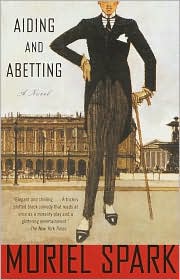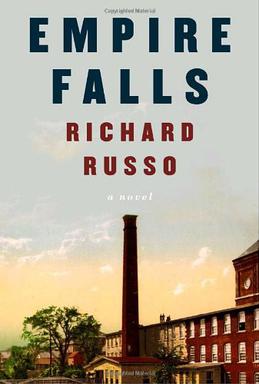 The fabulous statistics continued to pour out of the telescreen. As compared with last year there was more food, more clothes, more houses, more furniture, more cooking pots, more fuel, more ships, more helicopters, more books, more babies--more of everything except diseases, crime, and insanity. Year by year and minute by minute, everybody and everything was whizzing rapidly upwards. As Syme had done earlier, Winston had taken up his spoon and was dabbling in the pale-colored graby that dribbled across the table, drawing a long streak of it out in a pattern. He meditated resentfully on the physical texture of life. Had it always been like this? He looked around the canteen. A low-ceilinged, crowded room, its walls grimy from the contact of innumerable bodies; battered metal tables and chairs, placed so close together that you sat with elbows touching; bent spoons, dented trays, coarse white mugs; all surfaces greasy, grime in every crack; and a sourish, composite smell of bad gin and bad coffee and metallic stew and dirty clothes. Always in your stomach and in your skin there was a sort of protest, a feeling that you had been cheated of something that you had a right to. It was true that he had no memories of anything greatly different. In any time that he could accurately remember, there had never been quite enough to eat, one had never had socks or underclothes that were not full of holes, furniture had always been battered and rickety, rooms underheated. Tube trains crowded, houses falling to pieces, bread dark-colored, tea a rarity, coffee filthy-tasting, cigarettes insufficient--nothing cheap and plentiful except for synthetic gin. And though, of course, it grow worse as one's body aged, was it not a sign that this was not the natural order of things, if one's heart sickened at the discomfort and dirt and scarcity, the interminable winters, the stickiness of one's socks, the lifts that never worked, the cold water, the gritty soap, the cigarettes that came to pieces, the food with its strange evil tastes? Why should one feel it to be intolerable unless one had some kind of ancestral memory that things had once been different?
The fabulous statistics continued to pour out of the telescreen. As compared with last year there was more food, more clothes, more houses, more furniture, more cooking pots, more fuel, more ships, more helicopters, more books, more babies--more of everything except diseases, crime, and insanity. Year by year and minute by minute, everybody and everything was whizzing rapidly upwards. As Syme had done earlier, Winston had taken up his spoon and was dabbling in the pale-colored graby that dribbled across the table, drawing a long streak of it out in a pattern. He meditated resentfully on the physical texture of life. Had it always been like this? He looked around the canteen. A low-ceilinged, crowded room, its walls grimy from the contact of innumerable bodies; battered metal tables and chairs, placed so close together that you sat with elbows touching; bent spoons, dented trays, coarse white mugs; all surfaces greasy, grime in every crack; and a sourish, composite smell of bad gin and bad coffee and metallic stew and dirty clothes. Always in your stomach and in your skin there was a sort of protest, a feeling that you had been cheated of something that you had a right to. It was true that he had no memories of anything greatly different. In any time that he could accurately remember, there had never been quite enough to eat, one had never had socks or underclothes that were not full of holes, furniture had always been battered and rickety, rooms underheated. Tube trains crowded, houses falling to pieces, bread dark-colored, tea a rarity, coffee filthy-tasting, cigarettes insufficient--nothing cheap and plentiful except for synthetic gin. And though, of course, it grow worse as one's body aged, was it not a sign that this was not the natural order of things, if one's heart sickened at the discomfort and dirt and scarcity, the interminable winters, the stickiness of one's socks, the lifts that never worked, the cold water, the gritty soap, the cigarettes that came to pieces, the food with its strange evil tastes? Why should one feel it to be intolerable unless one had some kind of ancestral memory that things had once been different?Sorry for the super-long excerpt, this was just one of the two passages that really jumped out at me and I wanted to include it in toto. The other passage was O'Brien's description of how the Party truly converts its dissenters before executing them: "The command of the old depotisms was 'Thou shalt not.' The command of the totalitarians was 'Thou shalt.' Our command is 'Thou art.' Powerful stuff.
I picked up 1984 after hearing from a friend that 1984 is the book that people most often lie about having read. I thought that was a great reason to pick it up and finally read it since I'd never been assigned to in high school or college. I'm glad I did, although it took me a little while to realize it.
We've all heard/read/seen this story a thousand times: World war. Dystopian future. Totalitarian government. Death of the individual. Etc. Throughout the novel I kept finding myself getting bored with the narrative because of how formulaic it all was. It took me a while to remember that 1984 is really the basis of most of those dystopian books/novels we've read, so I should probably cut it a little slack. That said, as a plot-driven piece 1984 isn't that mind-blowing. There's the occasional plot twist and the ending is darker than I expected when I picked it up. But for the most part it's exactly what you think it will be. A grim description of what could have been or what might yet be.
However, as a philosophical/political treatise 1984 has a lot of interesting things to say and discusses a lot of intriguing ideas. The 20-25 pages dedicated to The Book of the Brotherhood was certainly my favorite section of the novel. I could read an entire book just about doublethink. Doublethink is the conscious and unconscious acceptance of two contradictory ideas and the reconciliation of that contradiction. 'Torture is wrong.' This statement applies concerning the enemy torturing our troops. 'Torture is just.' This statement applies concerning our troops torturing our enemies. Both are right. There is no contradiction. But it gets even more intense because the idea of doublethink itself is doublethink. To acknowledge doublespeak is to acknowledge the need to reconcile a contradiction that doesn't exist. These are the philosophical tools needed to rule the world with an iron fist.
I also really enjoyed reading about Winston's work at the Ministry of Truth. Winston spends his days reviewing old newspaper and magazine articles and 'correcting' any inconsistencies between the past and more recent speeches by Big Brother, Oceania's shadowy figurehead and leader of the Party. Essentially, Winston changes the past to suit the reality that the Party to purport. What I found so interesting about this is how feasible it all sounded. Even today, in the information age, every article of information about our past is located in a finite number of places. If you could alter those articles, the truth of past events would exist only in the memories of those who experienced/heard about them. And if everything and everyone disagrees with your memory of an event, who's to say what really happened? Winston, of course, fights this notion and believes that as long as someone holds onto a memory, then reality cannot be altered. This concept led to another of my favorite lines in the novel, "Sanity is not statistical."
There are about 2 dozen more things I'd like to talk about concerning 1984's concepts of perception, interpretation, individuality, loyalty, and order but its 1:15 AM and I'm crashing.
Orwell, as in Animal Farm, criticizes totalitarian ideals throughout. Presenting a world in which the government rules all and extrapolating that concept to its logical extreme. 1984 is a great read full of important lessons that are still applicable 60 years after its publication. If you've never read this, or haven't since high school, I definitely recommend you pick it up and read it over the weekend. It'll make you analyze your preconceptions of love, hate, individuality, and power.
Highlights: Doublethink, newspeak, the Ministry of Truth
Lowlights: The ending, while inevitable, seemed kind of meaningless
PS - I'd argue that Oceania's (and I suppose Eurasia and Eastasia) government resembles more an extremely Liberal totalitarianism than an extremely Conservative one. Leave any thoughts in the comments section.








